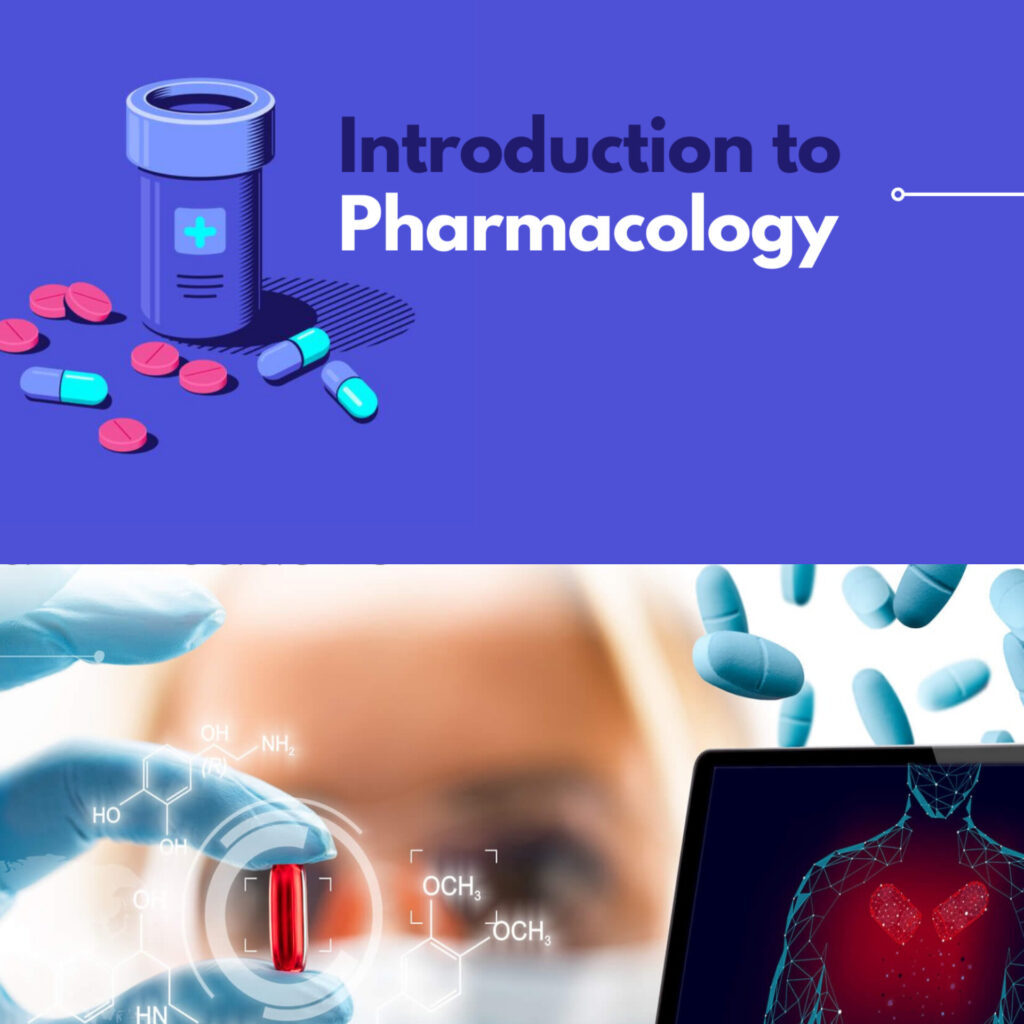
What is Pharmacology?
Pharmacology is the study of drugs and their effects on the body. It explains how drugs work, how the body responds to them, and how they are processed in the body.
Origin of the Word
- Pharmacon = Drug or Medicine
- Logos = Study or Science
➡️ Pharmacology = The science or study of drugs
What is a Drug?
A drug is any substance (natural or synthetic) used for:
- Diagnosis (e.g. X-ray contrast agents)
- Prevention (e.g. Vaccines)
- Treatment (e.g. Antibiotics)
A drug causes a change in body function. Diseases occur when there is an abnormal change in body functions or organs.
Drug Effects
- Pharmacodynamics
➡️ What the drug does to the body- Mechanism of action
- Drug-receptor interactions
- Therapeutic and toxic effects
- Pharmacokinetics
➡️ What the body does to the drug
Includes:- A: Absorption (how the drug enters the body)
- D: Distribution (how it spreads through the body)
- M: Metabolism (how the body breaks it down – often in liver by enzymes like CYP450)
- E: Excretion (how it leaves the body – urine, bile, etc.)
Drug Pathway in the Body
- Oral Drug → Stomach
- → Small Intestine (Absorption)
- → Portal Vein → Liver (Metabolism – First Pass Effect)
- → Systemic Circulation
- → Excretion (Kidney, Bile)
Pharmacovigilance
Monitoring the safety of drugs after they are released on the market.
Purpose: To detect, assess, understand, and prevent adverse effects.
- D: Detection
- A: Assessment
- U: Understanding
- P: Prevention
Other Branches of Pharmacology
- Pharmacogenetics: Study of how genetic differences affect drug response.
- Pharmacogenomics: Using genetic information to guide drug therapy for genetic diseases.
- Pharmacoepidemiology: Study of drug effects in large populations after clinical use.
- Experimental Pharmacology: Testing drugs on animals or tissues before human trials.
- Clinical Pharmacology: Studying drug effects on humans (healthy volunteers or patients).
Chemotherapy
- Use of chemical substances to kill or inhibit the growth of microorganisms or cancer cells.
- Drugs used are called chemotherapeutic agents.
Drug Names
A drug may have:
- Generic Name (Official name): e.g., Paracetamol
- Brand Name (Trade name): e.g., Dolo, Calpol
Common Terms
| Term | Meaning |
|---|---|
| Anatomy | Study of body parts |
| Bioinformatics | Use of computers to analyze biological data |
| Clearance | The rate at which a drug is removed from the body |
| Half-life | Time for drug levels in the body to reduce by 50% |
| Therapeutic Index | Ratio between toxic dose and effective dose |
| Dose | Amount of drug needed for desired effect |
| Disease | Abnormal structure or function in the body |
Motivational Quote:
“If you don’t drive your business, you will be driven out of business.”
